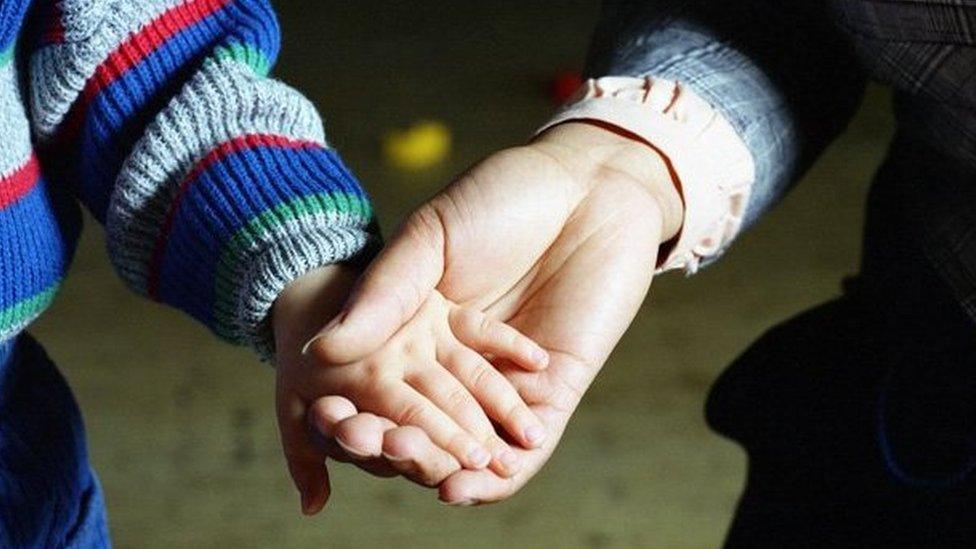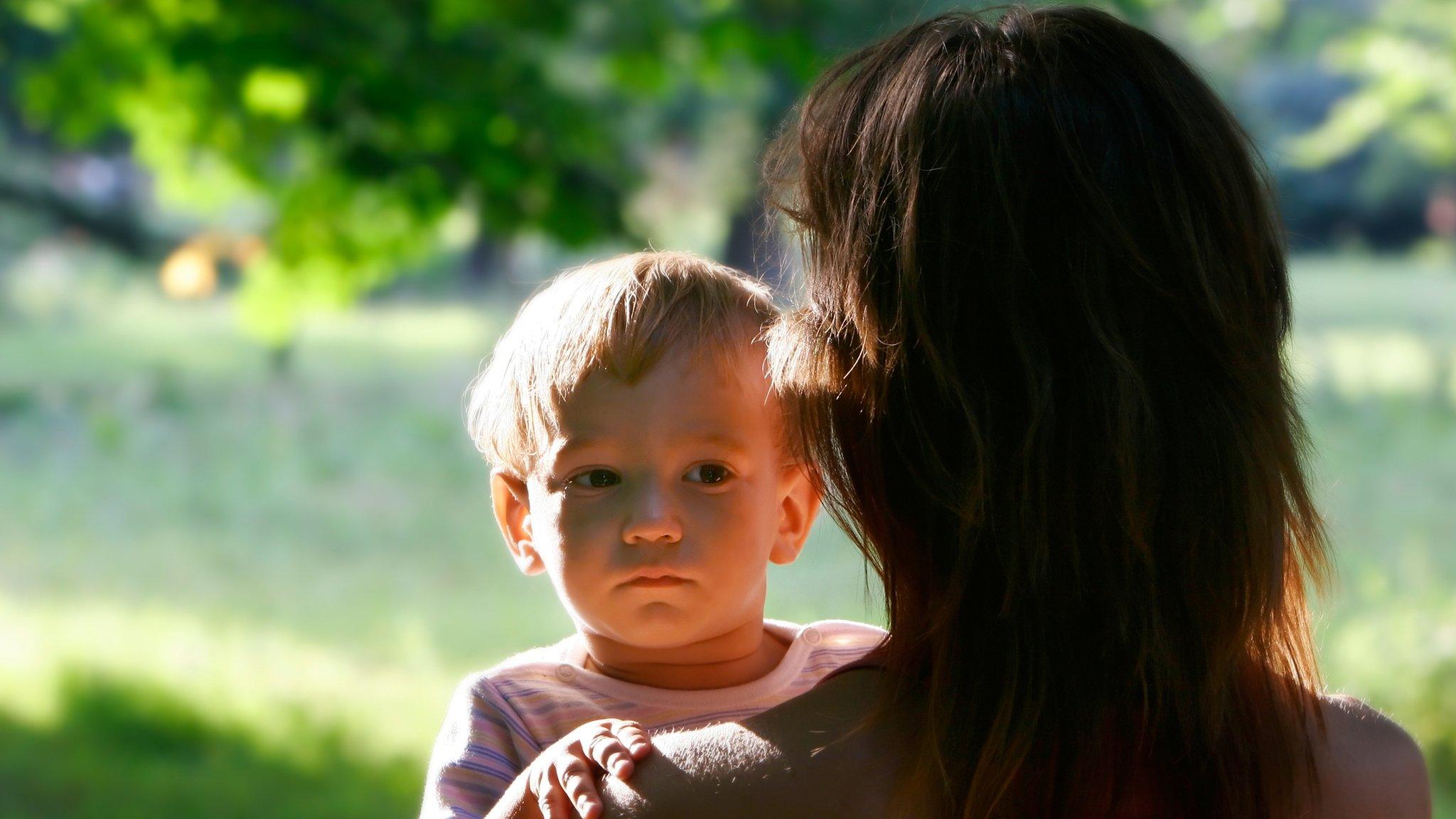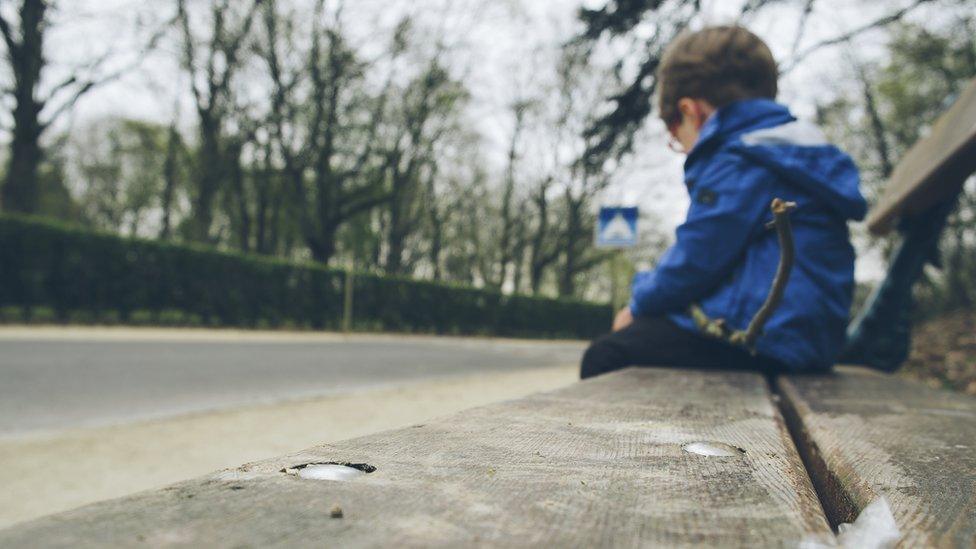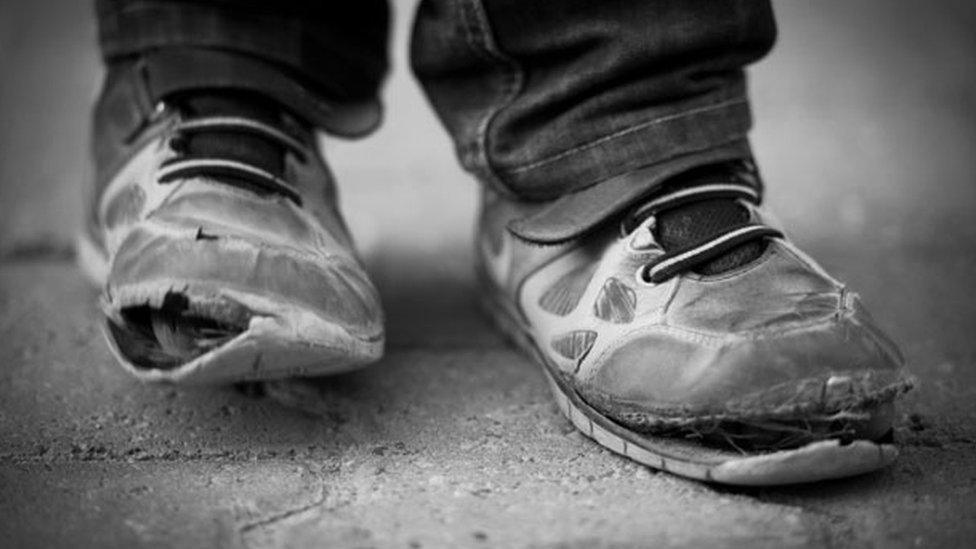Inquiries to prioritise needs of children in care, say AMs
- Published
Nick Ramsay says a short inquiry into care would not do the issue justice.
A series of investigations into the impact of public services on children and young people in care is being launched by an assembly committee.
Inquiries will look into issues including fostering and grants given to schools to help poorer children.
Public accounts committee chairman Nick Ramsay said "too often" children's needs were not prioritised.
Ninety children were in care in Wales in 2016 per 10,000 people, compared to 60 per 10,000 in England.
The Welsh figure has increased by 40%, from 64 children in care per 10,000 people in 2003.
The Prison Reform Trust has said people who had been in care were significantly over represented, external in the criminal justice system and custody.
Mr Ramsay, Conservative AM for Monmouth, said: "Statistics from 2015 show that 45% of care leavers aged 19 were not in education, training or employment.
"This is unacceptable and we know that their experiences of care contribute to putting them at a disadvantage as they move into adulthood."
Daniel Pitt, who went into care as a child, said more emotional support was needed for children in care
The committee will spend the next four years on the inquiries, the first of which will look into the value for money of services for children and young people in care.
An inquiry into the Pupil Deprivation Grant, external - which gives schools extra money for each pupil aged five to 15 who receives free school meals - is also planned, as well as one into councils' roles as "corporate parents".
"We have taken this unique approach because we think continuous scrutiny is needed to ensure that councils and other public services focus on making improvements," Mr Ramsay added.
"Too often these children and young people find that their needs are not prioritised."

One care expert said questions needed to be asked about social inequalities
Dr Jonathan Schofield, professor of social work at Cardiff University, said "really hard questions" needed to be asked about social inequalities.
"In the 10% most deprived communities in Wales you are 16 times more likely to come into care than you are in the 10% least deprived," he said.
He said specialist placements can be difficult to find, and that the employment record of children leaving care also needed attention.
"In relation to education the outcomes for children in care are often slightly better than they are for children in very adverse circumstances who are living at home, but they are still far from good enough. There's still a lot of work that needs to be done."
The committee has asked for responses to an initial consultation, external by 15 September.

Foster carer case study

Cathy Evans, from Cardiff, has been fostering children for the Barnardo's charity for 12 years, and is backing a UK-wide appeal by the charity to encourage more people to look after vulnerable teenagers.
"Sometimes they arrive with everything they own in a black bin liner," she said.
"If they have low self-esteem I encourage them to change the way they think creatively so they develop some self-worth.
"When it's time for them to move on I aim to ensure they feel better about themselves and they have learnt some of the skills they will need to live successful, independent lives.
"I fostered one amazing young man who came to me at 14 and still keeps in touch - he calls me his 'other mother'.
"He has just asked me to be the woman who gives him away at his wedding and that's just the biggest compliment."
- Published19 June 2017

- Published21 May 2017

- Published10 May 2017

- Published27 February 2017
